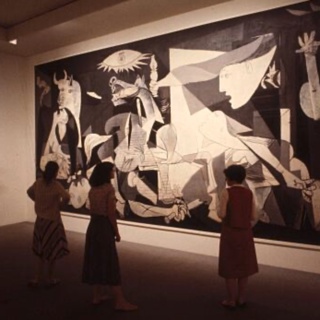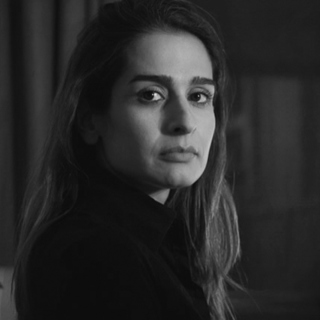
Gohar Homayounpour - Tell Me A Story: Shahrzad “in analysis” in contemporary Persia.
In this episode we will dive with Gohar Homayounpour into the tales of One Thousand and One Nights to bring a new articulation to the female Oedipus complex in contemporary Persia, allowing for the emergence of new possibilities of loving. Through a psychoanalytic textual analysis of the Nights, the author uncovers various archetypes of women that have been extinct from a more mainstream discourse, not only in Iran. The archetypes of Persian women populating Shahrazad’s tales night after night have been lost as sources of female identifications. The paper sets out to tell a story, and within it wishes to re-find a whole and integrated Shahrazad as an object of female identifications. Gohar Homayounpour is an author and psychoanalyst and member of the International Psychoanalytic Association, American Psychoanalytic Association, the Italian Psychoanalytic Society, and the National Association for the Advancement of Psychoanalysis. She is the Training and Supervising psychoanalyst of the Freudian Group of Tehran, where she is also founder and former director. She has published various psychoanalytic articles and her book, Doing Psychoanalysis in Tehran, published by MIT Press in August 2012, won the Gradiva award and has been translated into French, German, Italian, and Turkish. Link to the paper https://drive.google.com/file/d/1iV6w1CJEFY2D2OuPSauF15PbwBnxculw/view?usp=sharing Doing Psychoanalysis in Tehran, MIT Press.
23 Sep 202027min
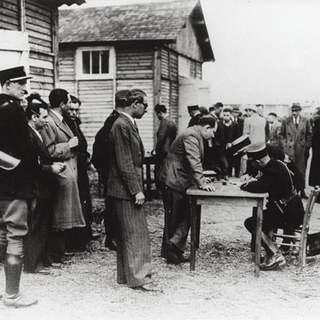
Rosine Perelberg - Murdered Father, Dead Father: Revisiting the Oedipus Complex.
Image from the Holocaust Museum, Pithiviers internment camp in 1941. In 1942 all the inmates were deported to Auschwitz-Birkenau. In this podcast Rosine Perelberg offers some reflections derived from her paper “Murdered Father, Dead Father: Revisiting the Oedipus Complex”, published in the International Journal of Psychoanalysis (in 2009), as well as from the last chapter of her book of the same title (in 2016). Rosine Perelberg suggests that in the Shoah one is confronted with the abolition of the law of the dead father. This refers to the murder of the dead father and the re-establishing of the tyranny of the narcissistic father. Based on her considerable knowledge of the literature on antisemitism, her background in history and social anthropology, as well as her own psychoanalytic writings, Rosine Perelberg advances her thoughts about antisemitism across the ages as well as in current times. Rosine Jozef Perelberg is a Fellow, Training Analyst, and President of the British Psychoanalytical Society, Visiting Professor in the Psychoanalysis Unit at University College London, and Corresponding Member of the Paris Psychoanalytical Society. She was born in Rio de Janeiro, Brazil, where she completed her BSc in Humanities and undertook an MSc in Social Anthropology, before her PhD in Social Anthropology at the London School of Economics. She has written and edited 12 books. Psychic Bisexuality was awarded the 2019 American Board & Academy of Psychoanalysis Book Prize for Best Edited Book. In 1993 she was co-winner of the Cesare Sacerdoti Prize at the IPA Congress in Buenos Aires. In 2006 she was named one of the 10 Women of the Year by the Brazilian National Council of Women. Link to the paper https://drive.google.com/file/d/1XgfYMuHHiM5a7H5ZfnsQcKcFYpOm-9i-/view?usp=sharing Murdered Father, Dead Father: Revisiting the Oedipus Complex (The New Library of Psychoanalysis). This episode is available also in French and Portuguese
15 Sep 202027min
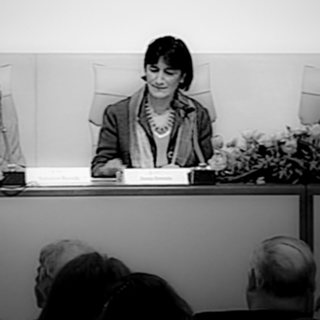
Anna Ferruta - The Analytic Setting and Space for the other.
Link to the paper https://drive.google.com/file/d/17tUskQlP-KG6BYBwYFWKnRHlzwDq4jWf/view?usp=sharing In today's episode Anna Ferruta presents an excerpt from her article published in 2014 in The Italian Psychoanalytic Annual entitled: “The Analytic Setting and Space for the other”. Anna Ferruta is Psychologist, Full Member and Training Analyst of the Italian Psychoanalytical Society and of the International Psychoanalytical Association. She works as a psychoanalyst in Milan, Italy, specialising in the treatment of sever psychic pathologies and the psychodynamics of institutional working groups. She is a founding member of Mito&Realtà: Association for Therapeutic Communities. Other appointments have included Vice-Director of Psiche, Lecturer in Psychiatry at the University of Pavia, and consultant in the Neurological Institute C. Besta, in Milan. She is the author of several Italian and international publications. Etude Op. 25 no. 4 in A minor - 'Paganini' comes from https://musopen.org This episode is available also in Italian
6 Sep 202030min
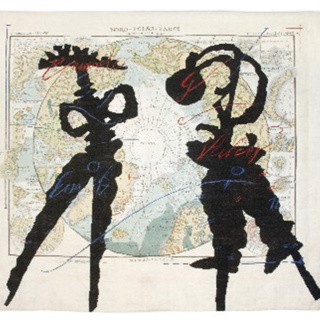
Fakhry Davids and Virginia De Micco - Racism and Violence in Pandemic Times.
William Kentridge, North Pole Map, 2003 Racism and violence in pandemic times: a psychoanalytical point of view. A conversation between Fakhry Davids and Virginia De Micco In this episode Fakhry Davids and Virginia De Micco begin with a reflection on the “Black Lives Matter” movement, suggesting a continuity between the inequalities of the past and those involved in societal racism today. They consider how such inequalities are internalized, suggesting that it results in one’s in-group identity being structured as an us-them link with an out-group, in which projective processes are heavily involved. Does the increased sense of vulnerability during times of pandemic produce greater pressure to project fear, danger, or ‘evil’ into the racial others – just at a time when their greater vulnerability is more evident? Fakhry Davids, is a Training and Supervising Analyst of British Society, a member of the International Research Group Geographies of Psychoanalysis, a Board Member of PCCA (Partners in Confronting Collective Atrocities, www.p-cca.org) and Member of the Holmes Commission for Racial Equality, American Psychoanalytic Association. Virginia De Micco, is a Full Member of Italian Society, a member of the International Research Group Geographies of Psychoanalysis, and a Board Member of the group PER (Psicoanalisti Europei per i Rifugiati) of the Italian Society. Etude Op. 25 no. 4 in A minor - 'Paganini' comes from https://musopen.org
31 Aug 202041min
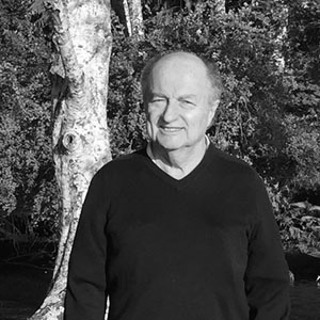
Denys Ribas - Death Drive and Destructiveness.
Link to the paper https://drive.google.com/file/d/1cKf5I7TgScLynhcPpcvkUetrHrdnez0r/view?usp=sharing Denys Ribas is a psychiatrist, child psychiatrist and psychoanalyst. He directed for 8 years the «Revue Française de Psychanalyse» and was for 4 years the President of the Paris Psychoanalytical Society. He has collected a long experience as psychoanalyst in a day hospital for young children, some of whom was autistic. His interest in the death drive comes to him both from the experience of the psychic conflictuality and from his deepening of the specifically autistic problematic, in line with the contributions of Tustin and of Meltzer. He has also worked with Benno Rosenberg, conceiving drive fusion and defusion in their movements in neurosis, in borderline states as well as in psychosomatic states where the somato-psychic balance is disturbed. Etude Op. 25 no. 4 in A minor - 'Paganini' comes from https://musopen.org This episode is available also in French
24 Aug 202028min
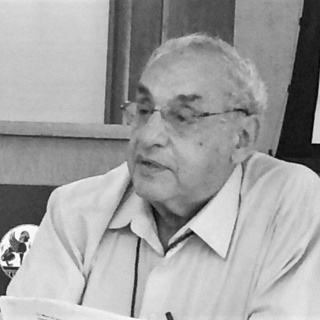
Roosevelt Cassorla - Fanaticism: Reflections based on phenomena in the analytic field.
In today’s episode Roosevelt Cassorla will present his paper: “Fanaticism: Reflections based on phenomena in the analytic field”, recently published in the International Journal of Psychoanalyisis. Roosevelt Cassorla is a Training Analyst for the Brazilian Psychoanalytic Societies of São Paulo and Campinas as well as a Full Professor of Medical Psychology at the State University of Campinas. He is a member of the Editorial Board of the International Journal of Psychoanalyisis and of other journals. He is a contributor to the IPA Inter-Regional Encyclopedic Dictionary of Psychoanalysis. He has published six books. His latest are The Psychoanalyst, The Theater of Dreams and The Clinic of Enactment and Suicide: Unconscious Factors and Socio-Cultural Aspects: An Introduction (in Portuguese). Cassorla also coordinates the Working Party "Microscopy of the Analytic Session" of the Brazilian and Latin America Psychoanalytic Federations. He received the 2017 Sigourney Award for Outstanding Achievement in Psychoanalysis. Etude Op. 25 no. 4 in A minor - 'Paganini' comes from https://musopen.org
17 Aug 202022min
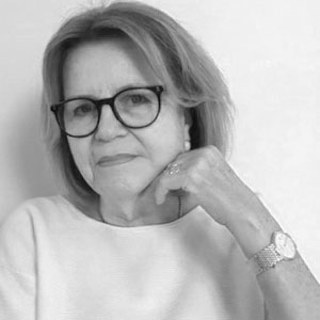
Cordelia Schmidt-Hellerau - Driven to Preserve Self and Object.
In today’s episode Cordelia Schmidt-Hellerau will present her talk titled “Driven to preserve self and object” where she eloquently investigates the structuring function of the object in tension with the subject and its drives; the role of the aggression as an intensified expression of a need; and her original term “Lethe”, describing the energy of these preservative drives. Cordelia Schmidt-Hellerau, (PHD) is a Training and Supervising Analyst of the Boston Psychoanalytic Society and Institute, and the Swiss Psychoanalytic Society. She has published numerous papers and 3 books on metapsychology, clinical issues, and applied Psychoanalysis. Since 2017 she has been the Chair of the IPA in Culture Committee Link to Paper https://drive.google.com/file/d/1L9hRbztqFt0sbTpMls7Jvih2U2mAyGAI/view?usp=sharing Etude Op. 25 no. 4 in A minor - 'Paganini' comes from https://musopen.org This podcast is also available in French and German
10 Aug 202027min
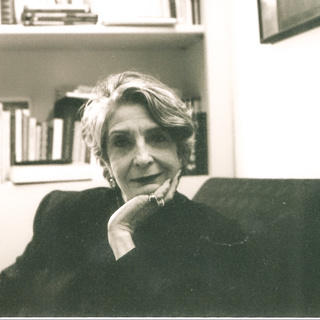
Marilia Aisenstein - Desire, Pain and Thought.
In today's episode we welcome Marilia Aisenstein who will talk about her upcoming book which will be published at the end of September 2020, titled Désir, douleur, pensée. Marilia Aisenstein is a training analyst from the Hellenic Psychoanalytical Society and the Paris Psychoanalytical Society, of which she was also President. In 1992 she received the Bouvet Prize. She has been a representative on the Board of the IPA and also on its Executive Committee. She is currently European President of the New Groups Committee of the IPA and Deputy Secretary of the Congress of French Language Psychoanalysts. Link to paper https://drive.google.com/file/d/1JAZ4TSeaN0ulP2WVzhJOgOXxwTRkxCuf/view?usp=sharing Etude Op. 25 no. 4 in A minor - 'Paganini' comes from https://musopen.org This podcast is also available in French
4 Aug 202024min
